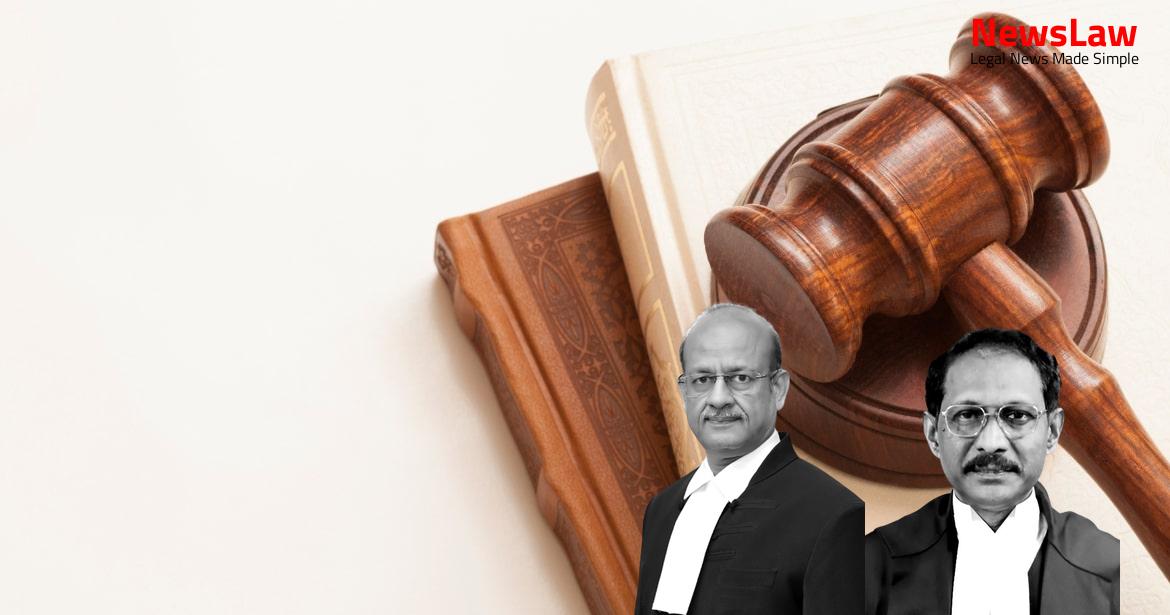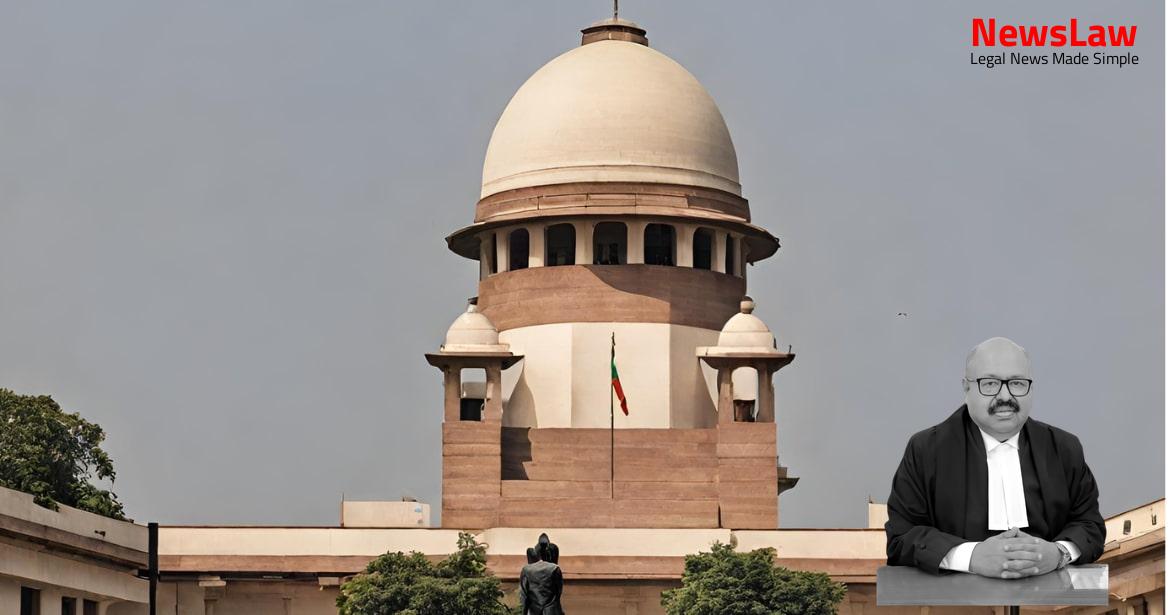Explore the detailed legal analysis conducted by the court on the application of limitation laws in executing foreign decrees. The judgment delves into the provisions of the Limitation Act, 1963, specifically focusing on Article 136 and 137, and the important role of Section 44A of the CPC. This case study emphasizes the differentiation between procedural aspects and substantive rights in relation to limitation laws, shedding light on the complex nature of executing foreign decrees in reciprocating countries. Stay tuned to unravel the critical insights provided by the court’s legal analysis.
Facts
- Bank of Baroda filed an execution petition almost 14 years after the decree was passed by the London Court.
- Vysya Bank placed an inter-bank deposit of US $1,400,000 with the Bank of Baroda with a request not to execute the London Court decree.
- A letter of credit was issued by Vysya Bank for US $1,794,258 on behalf of a customer, and payment was made to Granada Worldwide Investment Company.
- Bank of Baroda filed a suit against Vysya Bank for recovery of dues in London, which was decreed in favour of Bank of Baroda by the London Court.
- Talks occurred between the banks regarding the satisfaction of the decree.
- The Additional City Civil & Session Judge, Bangalore dismissed the execution petition as time barred.
- Article 136 of the Limitation Act, 1963 was held to apply.
- The execution petition should have been filed within 12 years of the decree being passed by the London Court.
- The High Court, in its judgment dated 13.11.2014, upheld the view of the trial court.
Also Read: Deputation Allowance in NDRF Personnel Case
Issue
- Limitation for filing an application for execution of a foreign decree of a reciprocating country in India is the issue in this case.
- India has established reciprocal agreements with certain countries for the enforcement of foreign decrees.
- The limitation period for filing an application for execution of a foreign decree is defined by the law.
- Understanding the specific limitation for filing an application in the context of a reciprocating country is crucial in this case.
Also Read: Analyzing Contempt of Court in Scandalous Allegations Case
Arguments
- Petitioner argues that principles of delay and laches may apply, but provides a list of dates to show Bank of Baroda’s efforts in settling with Vysya Bank to demonstrate no delay in filing the petition.
- Petitioner contends that since no limitation is specified under the Act, the cause of action for filing an execution petition arises only upon a petition under Section 44A of the CPC, triggering the 12-year limitation period under Article 136 of the Act from that date.
- Petitioner’s counsel argues that English law’s 6-year limitation period for execution should not apply, as the Act does not specify a limitation for execution of a foreign decree from a reciprocating country.
- Learned senior counsel for the respondent argues that even if Indian law of limitation applies, the limitation period for execution of a foreign decree is determined by Article 136 of the Act.
- Section 44A of the CPC states that a decree from a reciprocating country should be treated as an Indian decree, requiring enforcement within 12 years from the date of passing the decree.
- Execution of decrees from reciprocating territories is governed by Section 44A, where the decree can be executed as if passed by the District Court upon filing a certified copy and a certificate from the superior court.
Analysis
- Articles 136 and 137 of the Act outline the period of limitation for executing a decree or order of a civil court.
- Article 136 establishes a 12-year limitation period for executing a decree, except for perpetual injunctions which have no limitation period.
- Article 137 applies a three-year limitation period for any other application where the right to apply accrues.
- The Act provides that the law of the cause country determines the limitation period for executing a foreign decree.
- Section 44A of the CPC allows for the execution of money decrees from reciprocating countries in India.
- The section does not apply to non-monetary decrees.
- The starting point for the limitation period of a foreign decree in a reciprocating country executed in India is determined.
- The Act was amended in 1937 to allow for the execution of foreign court decrees in India.
- Previously, only suits could be filed based on foreign court judgments.
- Section 44A only applies to money decrees from reciprocating countries.
- The judgment delves into the concept of ’cause country’ and ‘forum country’ in the context of executing foreign decrees.
- The limitation for executing a decree is a crucial aspect discussed, emphasizing that losing the right to execute a decree in the cause country extinguishes the corresponding right in the forum country.
- The judgement discusses the application of limitation laws for executing foreign decrees, highlighting that the limitation starts from the date the decree was passed in the cause country.
- Different perspectives on the nature of limitation laws are explored, contrasting procedural aspects with substantive rights.
- The significance of Section 44A and its role in executing foreign decrees is elaborated, noting that it primarily deals with procedure and not the period of limitation.
- The interplay between the laws of the cause country and the forum country in relation to executing foreign decrees is analyzed, emphasizing that the limitation of the cause country typically applies.
- The judgment also addresses the necessity of fulfilling specific requirements when filing for execution of foreign decrees, such as providing detailed information about the judgment debtor and the property.
- A comparison is drawn between the approach to limitation laws in common law countries and civil law jurisdictions, emphasizing the substantive nature of limitation laws in civil law contexts.
- Various legal provisions and international conventions related to the execution of foreign decrees are referenced to provide a comprehensive analysis of the issue at hand.
- The view taken by the Full Bench of the Madras High Court in the case of Sheik Ali vs. Sheik Mohamed
- Contrary view taken by the Punjab & Haryana High Court in Lakhpat Rai Sharma vs. Atma Singh
- English lawyers have a broad interpretation of the term ‘procedure.’
- Foreign decrees must be executed in India as if passed by an Indian court, extending legal fiction to its logical conclusion.
- Foreign decrees are to be treated as Indian decrees when passed.
- English law traditionally considered limitation statutes to affect procedure, not substance.
- The Foreign Limitation Periods Act 1984 changed English limitation rules.
- Indian courts have generally viewed limitation laws as procedural.
- Recent views indicate statutes of limitation as substantive rather than procedural.
- Deeming provisions in statutes should be given full meaning and implications.
- English limitation rules apply only if English law is the governing law.
- The judgment in East End Dwellings Co. Ltd. vs. Finsbury Borough Council highlights the interpretation of deeming provisions.
- The right to apply under Section 44A accrues only after the execution proceedings in the cause country are finalized.
- The application under Section 44A can be filed within 3 years of the finalization of the execution proceedings in the cause country.
- If the decree holder does not execute the decree in the cause country within the prescribed limitation period, they cannot plead a new cause of action or request application of the forum country’s limitation.
- If the judgment debtor does not have sufficient property or funds in the cause country to satisfy the decree, alternative measures will be considered.
Decision
- No order as to costs.
- The proceedings in execution may continue for some time and the decree may be partially satisfied.
- Pending applications stand disposed of.
- Decree holder must approach Indian court with certified copy of the decree and requisite certificate within 3 years.
- Applying for certified copy of the decree or certificate of part-satisfaction in the cause country does not count as step-in-aid for execution.
- Limitation period starts from the date of decree in the foreign court of a reciprocating country.
- If decree holder first tries to execute the decree in the cause country and it is not fully satisfied, they can file for execution in India within 3 years of finalization of proceedings in the cause country.
- Appeal dismissed and orders of both Courts upheld.
Case Title: BANK OF BARODA Vs. KOTAK MAHINDRA BANK LTD. (2020 INSC 299)
Case Number: C.A. No.-002175-002175 / 2020



